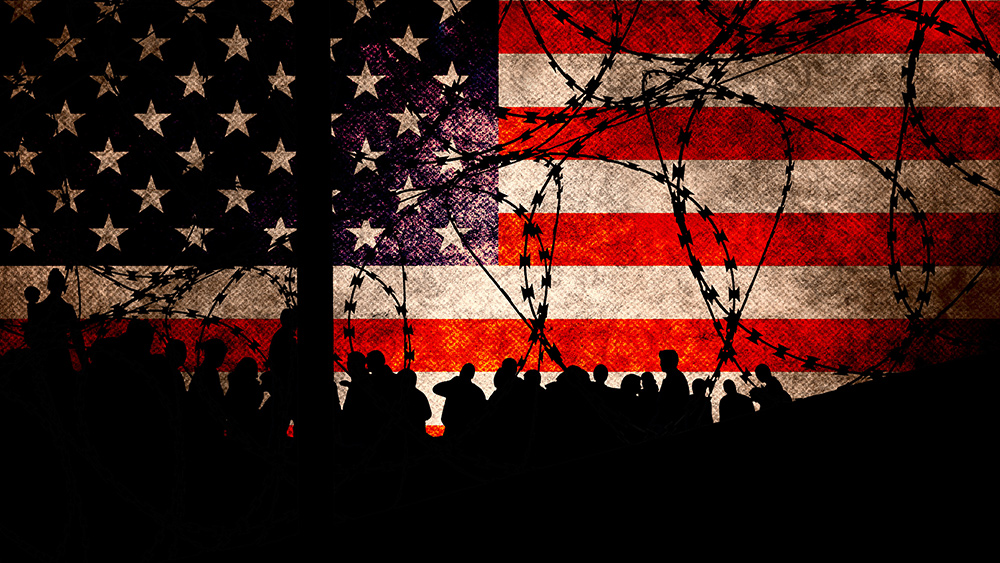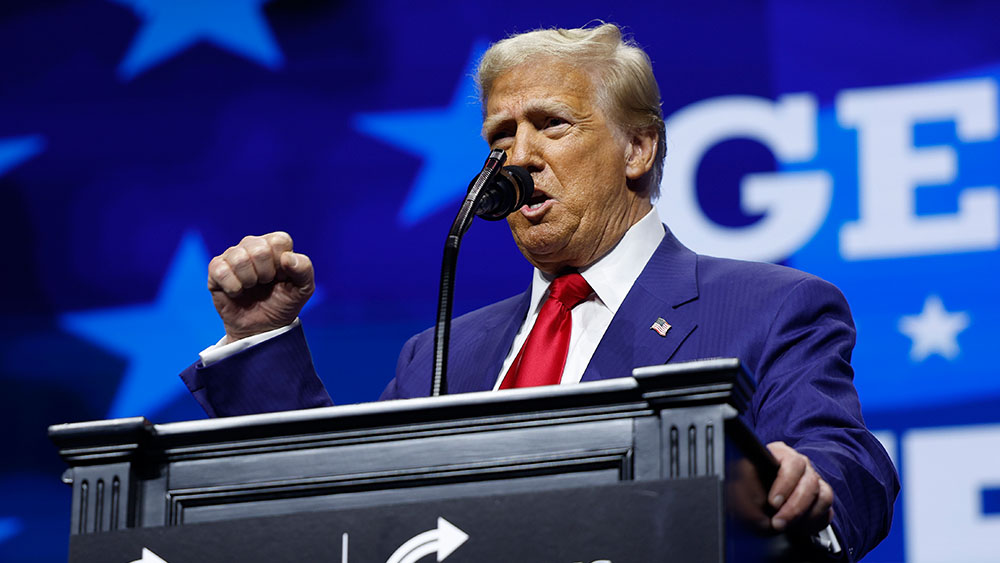 Parler
Parler Gab
Gab
- President Donald Trump declared a national emergency on his first day back in office – signaling a dramatic shift from the immigration policies of his predecessor, former President Joe Biden, and vowing to crack down on illegal immigration.
- The declaration empowers federal agencies to redirect resources and personnel to the border in order to halt illegal entries, resume border wall construction, deploy U.S. military troops, and reinstate strict immigration policies such as the "Remain in Mexico" program.
- The second Trump administration scrapped the Biden-era "catch and release" practice and CBP One mobile app, which immigration advocacy groups argue will separate families and weaken the economy, leading to immediate legal challenges.
- The national emergency declaration includes plans to designate Mexican drug cartels as terrorist organizations, aimed at combating cross-border trafficking of drugs and people.
- The declaration underscores Trump's determination to prioritize border security as a cornerstone of his domestic policy, though the longevity and impact of these policies will depend on the outcomes of anticipated court battles.
Trump's national emergency declaration faces immediate challenges
The decision to scrap CBP One was met with immediate legal challenges from the American Civil Liberties Union (ACLU) and condemnation from immigration advocacy groups. Jennie Murray, president and CEO of the National Immigration Forum, called the orders "disappointing but not surprising," warning that they would "separate families and weaken our economy." Greisa Martinez Rosas, executive director of United We Dream, accused the Trump administration of "actively trying to destroy [migrants'] lives" and warned of "devastating consequences" for immigrant communities. The national emergency declaration also includes plans to designate Mexican drug cartels as terrorist organizations, a move aimed at combating cross-border trafficking of drugs and people. Chad Wolf, former acting homeland security secretary, praised the decision, stating, "To secure our borders, protect our communities, and defend our sovereignty, we must confront the cartels with the full force of the law." While the declaration grants Trump significant executive powers, some measures such as ending birthright citizenship face steep legal hurdles. Birthright citizenship is enshrined in the U.S. Constitution and would require a constitutional amendment to change. The national emergency declaration underscores Trump's determination to prioritize border security as a cornerstone of his domestic policy. By bypassing congressional approval, the administration can act swiftly to implement its agenda, though the longevity and impact of these policies will depend on the outcomes of anticipated court battles. As the second Trump administration moves forward with its aggressive immigration overhaul, the declaration marks a stark reversal from the Biden era and sets the stage for a contentious battle over the future of U.S. immigration policy. For Trump, securing the border remains not just a policy priority but a moral imperative. "I have no higher responsibility than to defend our country from threats and invasions," Trump declared, signaling that his approach to border security in his second term will mirror the urgency and intensity of his first. Head over to Trump.news for more stories about the president's immigration policy. Watch this video from Fox News about President Donald Trump's picks for his "border security dream team." This video is from the TrendingNews channel on Brighteon.com.More related stories:
Trump's new border czar plans to deport illegals immediately. Trump advocates stronger immigration policies and border security. SETTING THE TONE: Trump plans to issue at least 25 executive orders on Day 1. Trump sets the stage for immigration crackdown: Meet the new BORDER ENFORCERS. Sources include: X.com BBC.com Newsweek.com Brighteon.comDeep State in disarray: Trump’s funding freeze sows chaos, Democrats vow legal battle
By Willow Tohi // Share
HUGE: Putin claims 2020 election fraud in U.S. sparked Ukraine war, calls for peace talks with Trump
By Belle Carter // Share
Trump’s border success: A beacon of hope for Europe
By Willow Tohi // Share
Governments continue to obscure COVID-19 vaccine data amid rising concerns over excess deaths
By patricklewis // Share
Tech giant Microsoft backs EXTINCTION with its support of carbon capture programs
By ramontomeydw // Share
Germany to resume arms exports to Israel despite repeated ceasefire violations
By isabelle // Share










